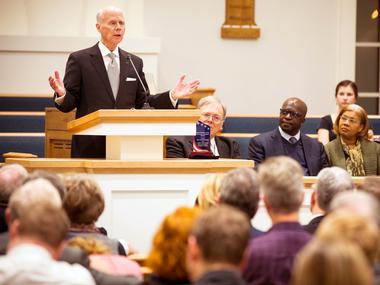Religious freedom is a complex issue with many facets — legal, cultural, institutional and philosophical. It also has a spiritual side.

Elder Lance B. Wickman, general counsel for The Church of Jesus Christ of Latter-day Saints and emeritus General Authority Seventy, focused on this topic in a speech at a J. Reuben Clark Law Society event in Philadelphia on February 17, 2017.
He said the Latter-day Saint approach to religious freedom is grounded in the Church’s understanding of the Atonement of Jesus Christ and the moral agency God has given each person.
“Religious liberty helps preserve the benefits of the Atonement to each soul because it protects moral agency in matters of faith,” Elder Wickman said. “It is this agency that is the crucible — the fiery furnace of adversity and decision — in which we determine our eternal destiny. It is the crossroads, and sometimes the ‘cross,’ where each of us decides whether or not to choose Christ and His commandments. Exercising that agency is the very purpose of mortal life.”
Elder Wickman said protecting the space to follow one’s conscience is critical for Latter-day Saints and those of other faiths or no faith at all.
“Latter-day Saints understand that religious liberty is primarily about preserving our right to choose Christ and live His gospel,” Elder Wickman said. “And for us, respect for that same principle of agency impels us to grant reasonable tolerance to others to choose differently.”
Read Elder Wickman's full address, “The Crucible: The Atonement, Moral Agency, and the Law.”